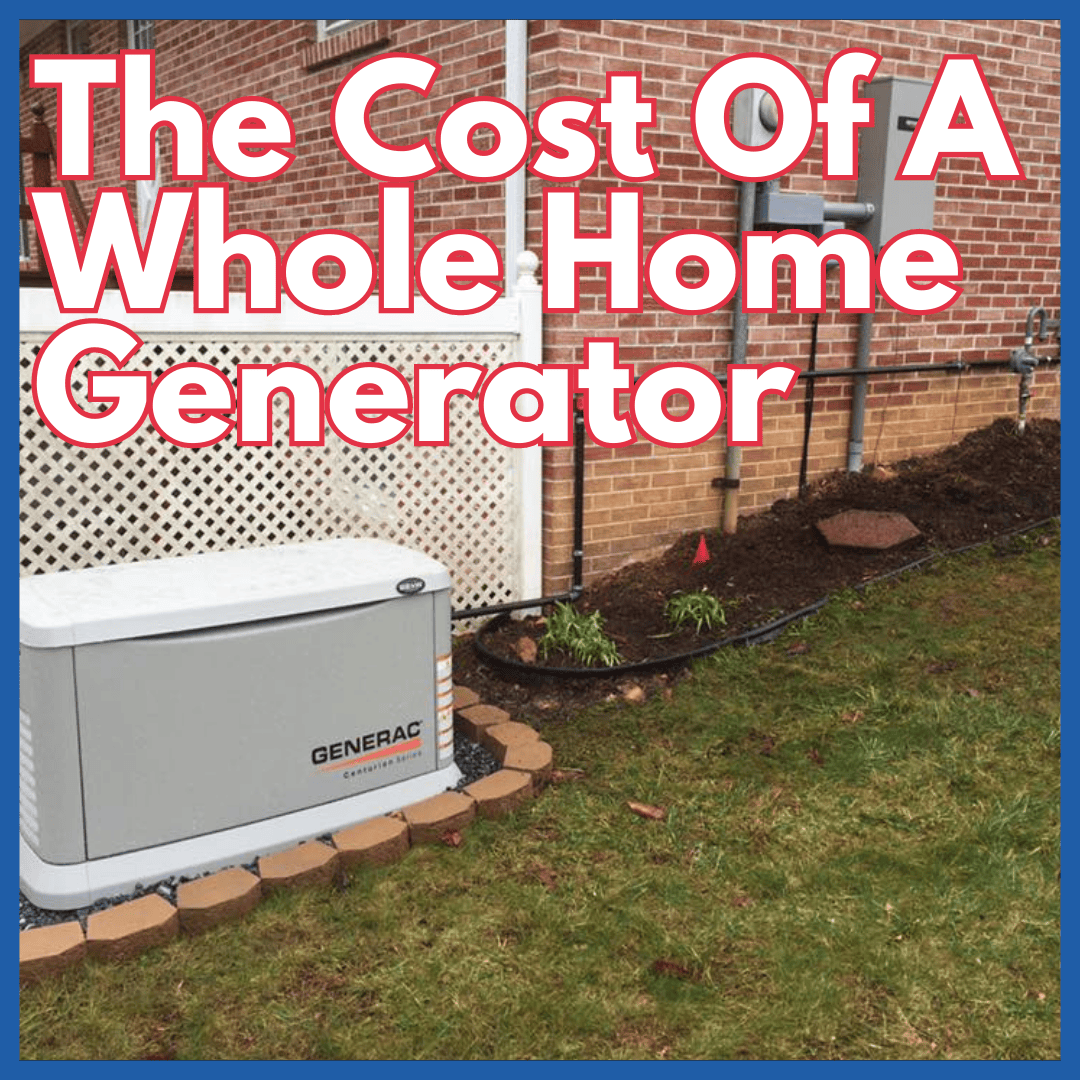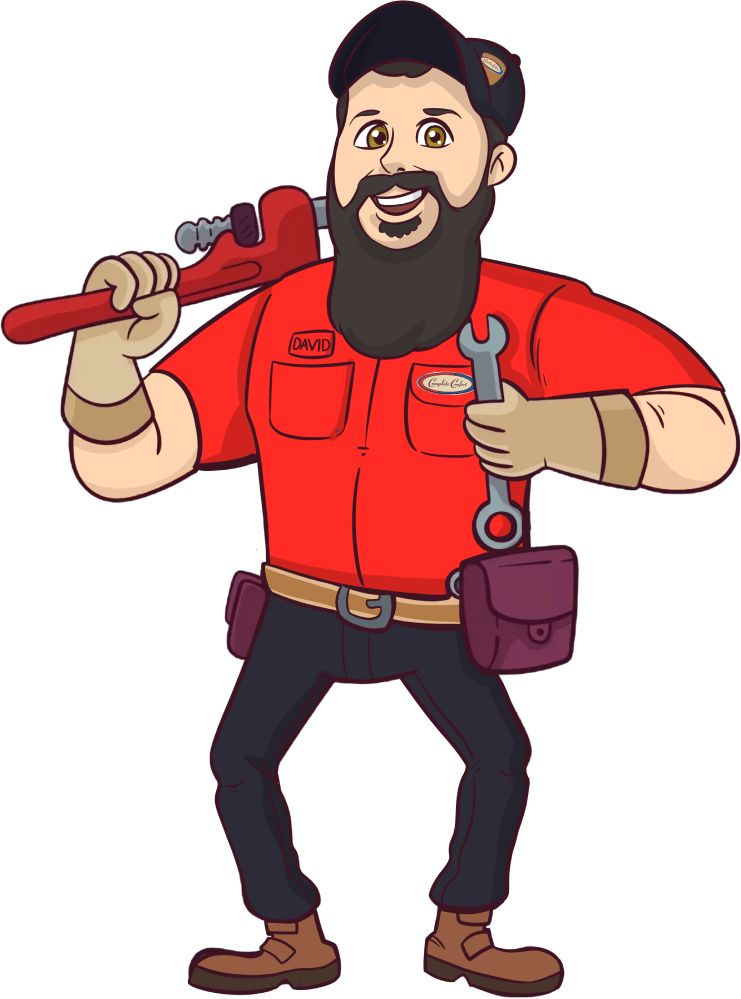The Cost of A Whole House Generator Near Chilhowie, Virginia
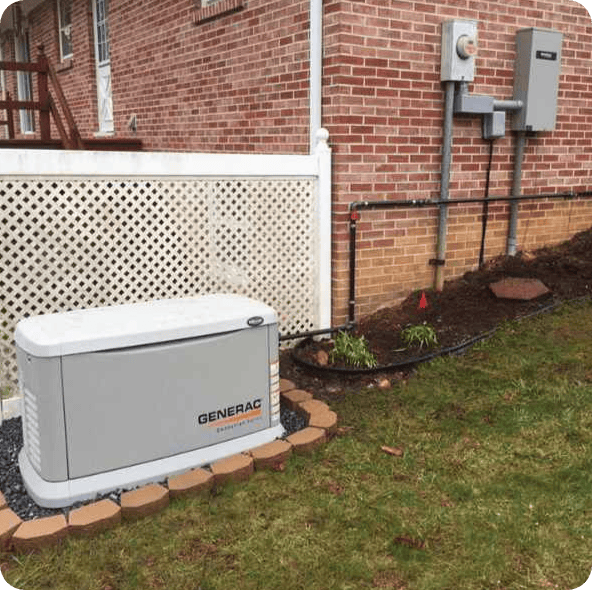 The cost of a whole-house generator near Chilhowie, Virginia can be anywhere between $8,000 and $25,000 depending on the size of your home and the number of appliances you want to run. Our average whole-home generator installation runs about $10K – $12K.
The cost of a whole-house generator near Chilhowie, Virginia can be anywhere between $8,000 and $25,000 depending on the size of your home and the number of appliances you want to run. Our average whole-home generator installation runs about $10K – $12K.
The features that drive the cost of your whole house generator installation can vary widely depending on the size of generator you need and the amount of work required to prepare your home for the safe installation of the generator and associated electrical requirements:
- Size of the backup generator
- Fuel type that will run your whole home generator
- Location of your generator relative to your home
- Transfer Switch
- Site Preparation
- Electrical service upgrade necessary
- Warranties and add-on maintenance agreement
I have been installing generators for years now, and know how important they can be for a home or business. We deal with a lot of Generac Generators. Complete Comfort is a Generac PowerPlay Dealer and Generac Warranty Certified. In this article, I will tell you a little more about what plays a role in a whole house generator’s cost.
What Does a Whole Home Generator Look Like?
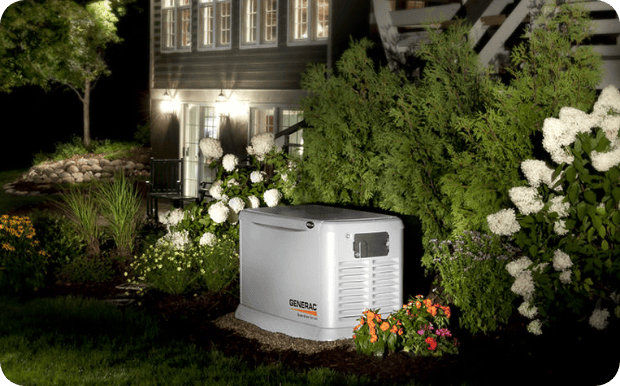 Generac whole home backup generators are housed in a sleek, modern enclosure that is anywhere from three to four feet in length, about three feet high, and about two feet deep.
Generac whole home backup generators are housed in a sleek, modern enclosure that is anywhere from three to four feet in length, about three feet high, and about two feet deep.
We can situate your generator anywhere on your property and can often hide it behind your landscaping.
The fuel source for most of the generators we install is either natural gas or propane, so the fuel line is either buried or very short and direct. Diesel-powered generators require a storage tank, which is available with some models. An additional fuel storage tank can be above ground or buried in accordance with local building codes.
Factors That Impact the Cost of a Whole-House Generator
Generator Size
The generator’s capacity or size directly correlates with its cost. A unit capable of powering a large home with multiple appliances will certainly cost more than one suitable for a smaller residence.
Your Generator Size Matters
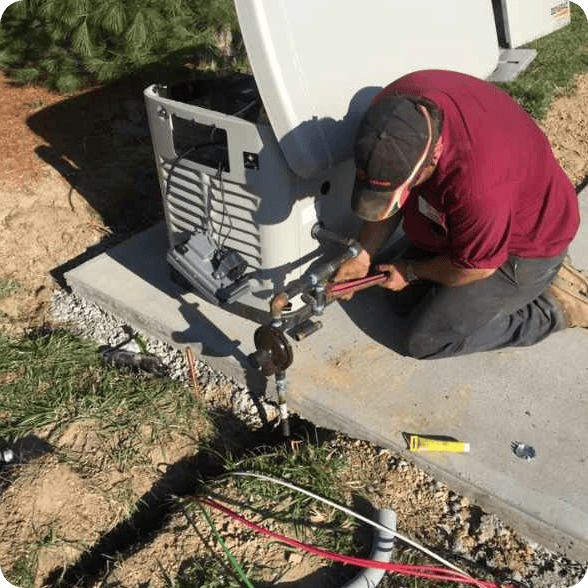 Do you want to keep everything in your house running, or are you only concerned about your refrigerator, air conditioning, heating system, sump pump, and cooking appliances?
Do you want to keep everything in your house running, or are you only concerned about your refrigerator, air conditioning, heating system, sump pump, and cooking appliances?
Does someone in your home require critical electric medical devices?
Do you need to keep your Internet running to work from home?
The size of the generator you select will be based on the power requirements of the appliances and systems you want to power.
We have prepared a sizing guide that will help you to do a quick self-assessment of your needs so you can determine if you really want a whole house generator or maybe something a bit smaller that will cover your essential electrical needs should the power go out for an extended period of time.
Generator Type
There are various types of generators, including standby, inverter, and portable. Standby generators typically cost more but offer more power and automatic operation during outages.
We install Generac whole house generators, and they offer models that range in sizes. The average size is usually between 22-26Kw.
Backup Generators are Powered by Natural Gas, Propane, or Diesel Fuel
Once you have an idea of the size, there’s the question of how you will power your whole house generator.
Most of the Generac generators we install in residential applications operate using either natural gas or propane, and some of Generac’s commercial-grade generators are available with the option to operate on diesel fuel.
The cost driver with this part of the project is related to the location of the fuel source relative to the location of the generator. How much piping is required to get fuel to your generator? The shorter the run of the pipe, the lower the cost will be.
Fuel Source
Different generators use different fuel sources. Here’s a breakdown:
Gasoline Generators
Common and relatively inexpensive, but the fuel doesn’t store well for long periods.
Diesel Generators
Efficient and longer-lasting, but can be noisier and more expensive.
Liquid Propane Generators
Cleaner burning and with a long shelf life, propane generators can be pricier than gasoline models.
Natural Gas Generators
They operate using your home’s natural gas line, which is very convenient.
Solar-Powered Generators
Eco-friendly and with minimal running costs, but their initial purchase price can be high.
Starting Method
Electric start generators are generally more expensive than manual pull-start models.
Battery Backup Installation
For added assurance during extended outages, a battery backup can be added, raising the overall cost.
Additional Costs
Transfer Switch Installation
A transfer switch safely switches your home from utility power to generator power, and its installation can add to costs.
Concrete Pad Installation
Some generators require a concrete pad for stability and safety, adding another layer of cost.
Cost of Labor
Depending on the complexity, installation labor costs can vary. If the installation is more complex, more time or additional parts may be needed.
Permits and Regulations
Local regulations may require permits for generator installations, leading to additional fees.
Other Important Considerations
From warranties to brand reputation, various secondary factors can influence your final decision and cost.
Maintenance and Running Costs
Regular maintenance, fuel, and any potential repairs should be budgeted for.
Potential Upgrades and Enhancements
Features like remote monitoring or a weatherproof enclosure can increase costs but offer added convenience and protection.
Electrical Consideration for Your Generator Installation Project
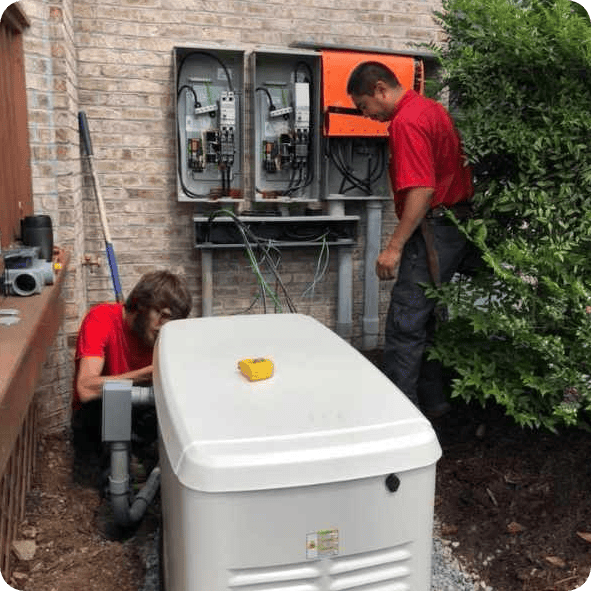 Your existing electrical panel may or may not be sufficient to handle your new whole-house generator. Your electrical needs and potential upgrade requirements are determined by the size of your backup generator and the size of your existing electrical service panel.
Your existing electrical panel may or may not be sufficient to handle your new whole-house generator. Your electrical needs and potential upgrade requirements are determined by the size of your backup generator and the size of your existing electrical service panel.
We will determine both of these things during your in-home consultation so you will know right away if this is going to be part of your generator installation expense.
Transfer switches can be manual or automatic and the cost, again, depends on the amperage rating and type. An automatic transfer switch (ATS) is the most common choice and will cost anywhere from $500 to $2,500.
Whole-House vs. Partial Generator
While whole-house generators can power everything in your home, a partial generator can handle only essential circuits, leading to cost differences.
Standby vs. Backup vs. Portable Generators
Standby generators are permanently installed and kick in automatically, while backup and portable units require manual setup, each with its respective price range.
Deciding When You Need a Whole-House Generator
For a Home Business
For those operating a business from home, uninterrupted power is crucial.
Living in Extreme Weather Conditions
Areas with frequent storms or power outages necessitate reliable backup power.
Dependence on Electrically Operated Medical Devices
For homes with medical equipment, power consistency can be a matter of life and death.
Necessity of a Sump Pump
To prevent flooding, homes with sump pumps need constant power.
DIY vs. Hiring a Professional
While DIY installation might save money upfront, hiring a professional ensures safety, efficiency, and compliance with local codes. We recommend letting a pro handle the installation of a generator.
Ways to Save Money on Whole-House Generator Cost
Consider rebates, off-season purchases, and contractor specials to reduce your home generator cost.
FAQs
Here are a few of the most common questions we hear about installing a whole-home generator.
Is a whole-house generator worth it?
For many homeowners, the peace of mind and security a whole-house generator offers, especially in regions with frequent power outages, make it a worthy investment. Having the tv is great, but really being able to store your food, run your air conditioning, and move around your home safely is worth the cost.
What is the lifespan of a whole-house generator?
With proper maintenance, these generators can last 20-30 years.
Can you run a generator 24 hours a day?
While many generators can run continuously, periodic rest and maintenance checks are essential. Generators should not be the main source of power for any home permanently.
How long can a Generac Generator run non-stop?
Generac’s standby generators are designed for long-running times, often capable of running for a week or more continuously with the proper fuel supply.
Generator Installation in Smyth County, VA
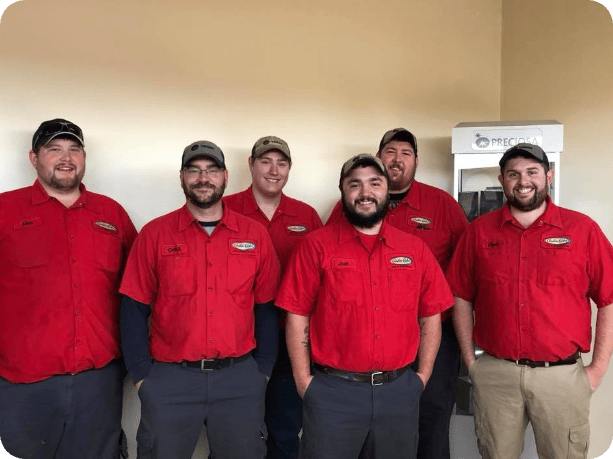
If you are looking for the most experienced generator installation contractor in Smyth County, VA, you have come to the right place.
Give us a call at (276) 690 -9222 if you’d like us to come out and work up the exact price for your generator installation.


